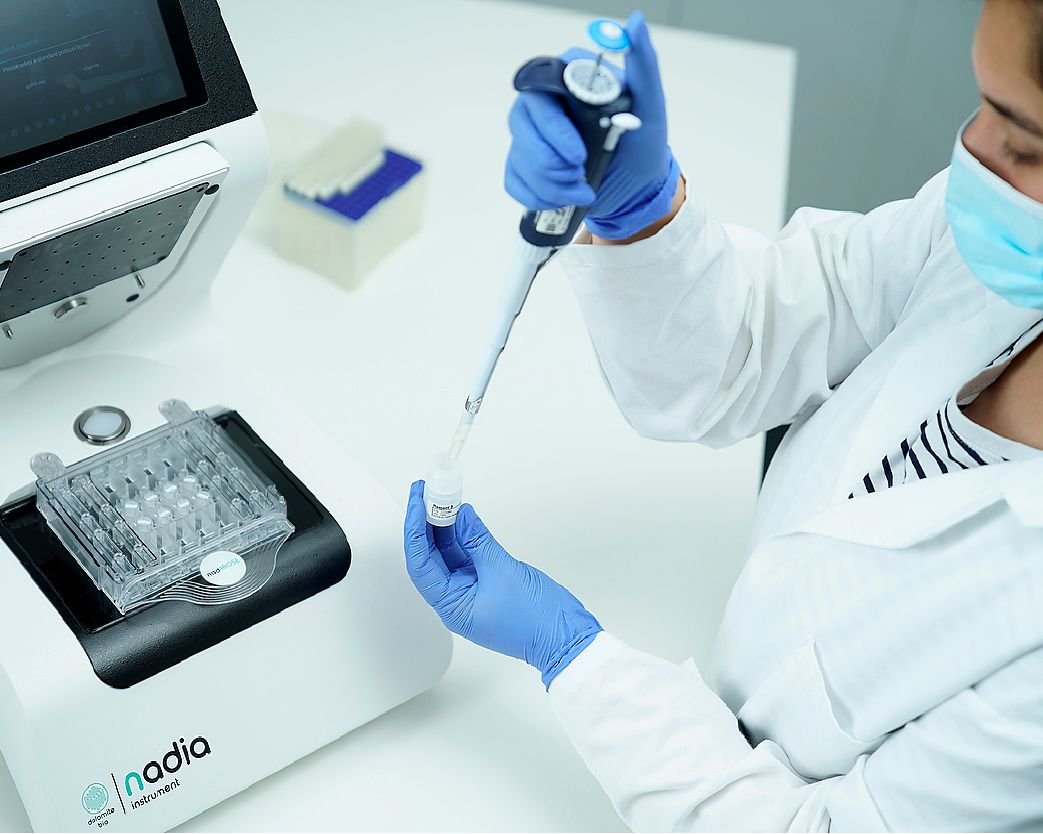Dolomite Bio releases hydrogel reagent kits for agarose encapsulation and 3D cell culture research
10 June 2022 | Friday | News

Image Source : Public Domain
Due to the flexible nature of the Nadia Instrument, researchers can perform high throughput encapsulation of up to 1 million cells in one run, with a choice of running 1,2,4 or 8 lanes in parallel, in under 30 minutes. The fully automated Nadia Instrument guides users through all relevant steps of the experiment via an easy-to-use touchscreen interface. With single use chips and precise temperature control, the Nadia instrument is ideally suited for your hydrogel research projects. Additionally, researchers will benefit from the wide sample compatibility, opening up research areas involving large cells of over 50 µm in diameter, such as cardiomyocytes.
Most importantly, both kits can offer control over mono-clonality, giving researchers access to a variety of downstream workflows, such as, cell secretion studies, cell-cell interactions, microbial cell culture. Furthermore, the nadAROSE kit is compatible with cytometric analyses. The nadia3D kit opens up downstream workflows in: the development of novel culture techniques for fastidious cell lines, disease modelling, identification of novel drug targets and pharmaceutical screening.
Nadia Shakir, Production Manager for Dolomite Bio said this about the upcoming launch ‘Researchers are bottlenecked by the lack of commercial solutions for 3D cell scaffold production, with nadia3D and nadAROSE, this barrier is removed’
Most Read
- How Does GLP-1 Work?
- Innovations In Magnetic Resonance Imaging Introduced By United Imaging
- Management of Relapsed/Refractory Multiple Myeloma
- 2025 Drug Approvals, Decoded: What Every Biopharma Leader Needs to Know
- BioPharma Manufacturing Resilience: Lessons From Capacity Expansion and Supply Chain Resets from 2025
- APAC Biopharma Review 2025: Innovation, Investment, and Influence on the Global Stage
- Top 25 Biotech Innovations Redefining Health And Planet In 2025
- The New AI Gold Rush: Western Pharma’s Billion-Dollar Bet on Chinese Biotech
- Single-Use Systems Are Rewiring Biopharma Manufacturing
- The State of Biotech and Life Science Jobs in Asia Pacific – 2025
- Asia-Pacific Leads the Charge: Latest Global BioSupplier Technologies of 2025
- Invisible Threats, Visible Risks: How the Nitrosamine Crisis Reshaped Asia’s Pharmaceutical Quality Landscape
Bio Jobs
- Sanofi Turns The Page As Belén Garijo Steps In And Paul Hudson Steps Out
- Global Survey Reveals Nearly 40% of Employees Facing Fertility Challenges Consider Leaving Their Jobs
- BioMed X and AbbVie Begin Global Search for Bold Neuroscience Talent To Decode the Biology of Anhedonia
- Thermo Fisher Expands Bengaluru R&D Centre to Advance Antibody Innovation and Strengthen India’s Life Sciences Ecosystem
- Accord Plasma (Intas Group) Acquires Prothya Biosolutions to Expand Global Plasma Capabilities
- ACG Announces $200 Million Investment to Establish First U.S. Capsule Manufacturing Facility in Atlanta
- AstraZeneca Invests $4.5 Billion to Build Advanced Manufacturing Facility in Virginia, Expanding U.S. Medicine Production
News











